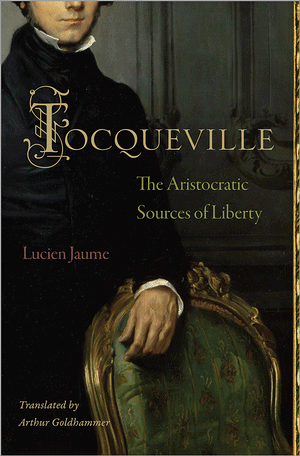
A Review of Lucien Jaume's Tocqueville: The Aristocratic Sources of Liberty (Princeton: Princeton University Press, 2013).
While this profound, and elegantly written and translated work,
will not appeal to all scholars of political thought, Jaume (Centre Recherche
Politiques de Sciences Po) nevertheless provides many insights into the life
and work of the great French student of American social and political life. Emphasizing the contribution of Democracy in America, the author
suggests that the best interpretative model for understanding Tocqueville incorporates
an appreciation for his historical context, arguing that Tocqueville should not
be considered as our “contemporary” (p. 8); an acknowledgement of his
attachment to French ideas; and a realization of the opaque nature of his
critique (a “palette of meanings,” p. 9).
Jaume proceeds to analyze Tocqueville as a political scientist,
sociologist, moralist, and literary figure.
As a political scientist, Tocqueville is an advocate of popular rule
with an organic view of politics, and a defender of the diffusion of political
authority and localism. Society begets
political arrangements, and for Tocqueville, “society creates paths to its own
ends” (p. 95). As a moralist,
Tocqueville attempts to unite the “telos of democracy and the dignity of man”
(p. 186). Finally, as a writer,
Tocqueville is an “aristocratic moralist” (p. 326).

No comments:
Post a Comment
Note: Only a member of this blog may post a comment.